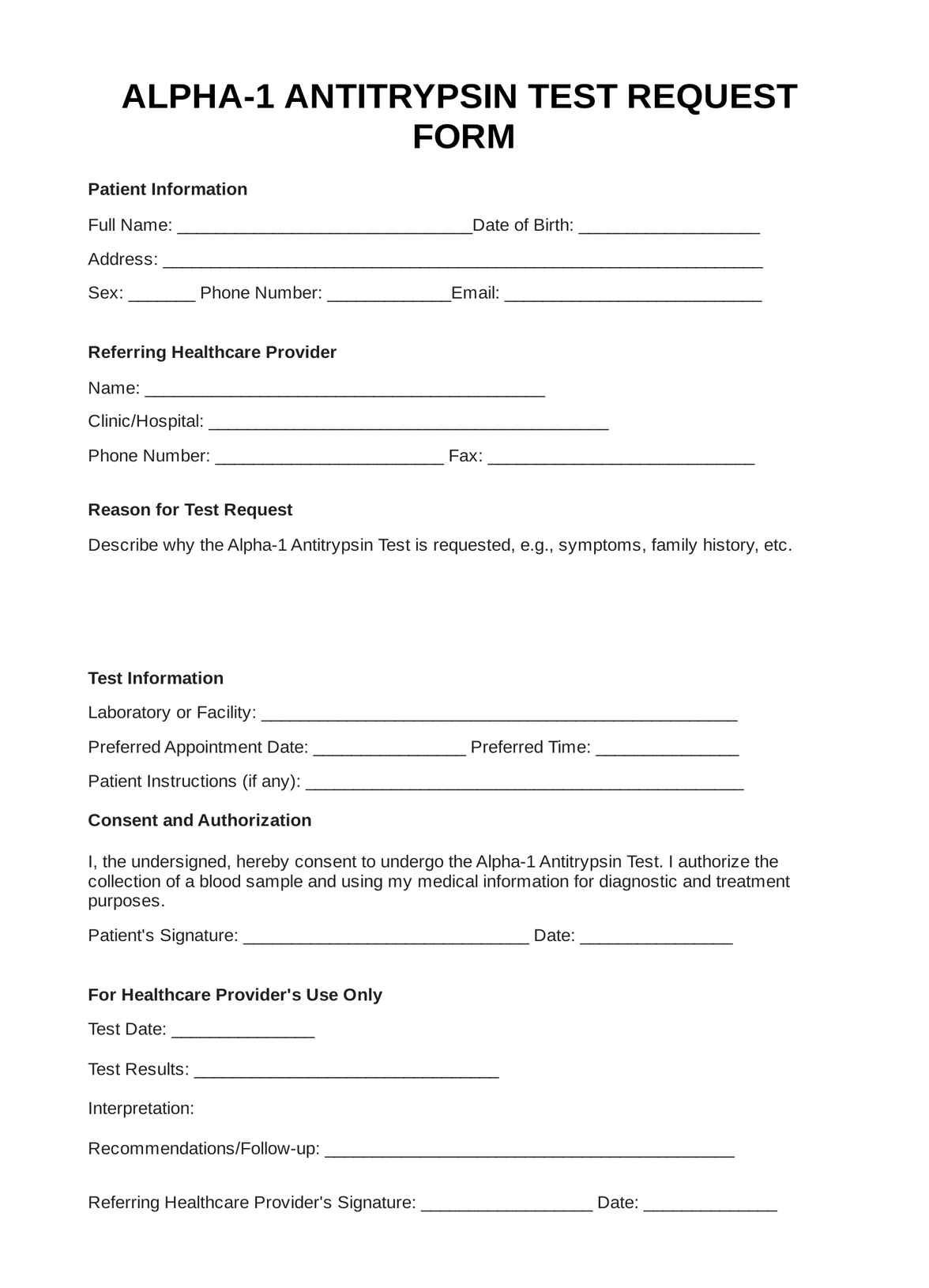Healthcare providers, such as pulmonologists, hepatologists, pediatricians, and genetic counselors, typically request Alpha-1 Antitrypsin Tests. It may also be recommended for individuals with a family history of AATD or specific medical conditions.

Alpha-1 Antitrypsin
Unlock the power of the Alpha-1 Antitrypsin Test. Learn about its uses, significance, and results to manage AATD effectively.
Alpha-1 Antitrypsin Template
Commonly asked questions
Alpha-1 Antitrypsin Tests are used when there's suspicion of alpha-1 antitrypsin deficiency (AATD), especially in unexplained lung or liver diseases. It's also employed in genetic counseling and research related to AATD.
The test involves collecting a blood sample, processing it to isolate serum or plasma, and conducting laboratory analysis to measure alpha-1 antitrypsin levels. Results are used to diagnose AATD and assess the associated lung and liver disease risk.
EHR and practice management software
Get started for free
*No credit card required
Free
$0/usd
Unlimited clients
Telehealth
1GB of storage
Client portal text
Automated billing and online payments











